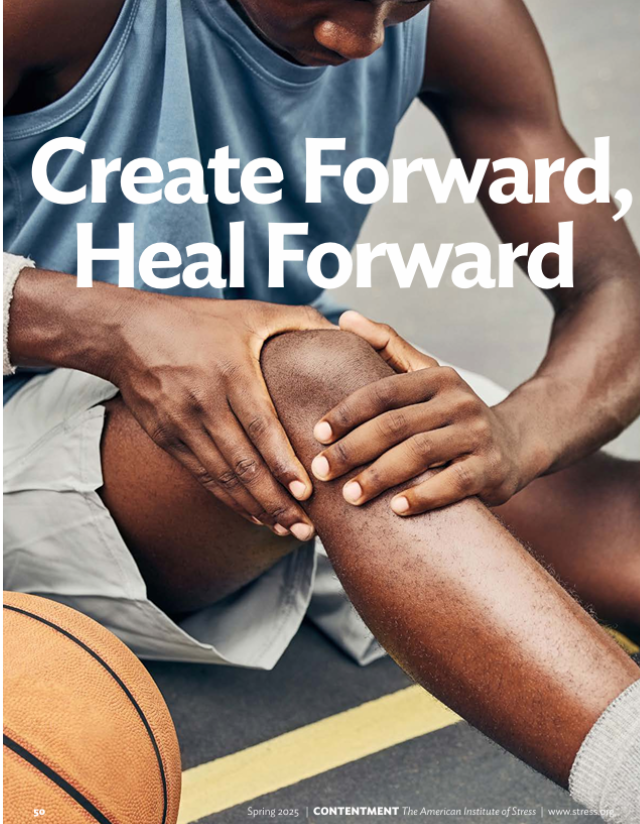The human brain has the ability to improvise and discover alternative ways to accomplish tasks. This is built over a lifetime of education and experience, mental health experts say.
once had a colleague who always seemed unshakable, as if nothing could ever bring her down whatever happens.
We were peers but she had a managerial instinct for solving problems and tackling stressful situations, which I greatly admired.
People often pegged me as someone diligent and reliable, but I had always struggled to manage shifting priorities, be it clients’ or bosses’ demands, which resulted in further stress and feelings of defeat.
My co-worker, on the other hand, adapted with ease. She swiftly re-prioritised tasks, found quick solutions to unexpected problems, and even had the energy to offer me advice.
I kept asking myself, why do some people like my former co-worker seem to have ample brain power or have stronger mental reserves to handle stress? She’s the same age as me, yet it often felt like she was at least five years older because of her abilities.
Soon, I was looking on the internet for articles on “cognitive reserve” and even found a video discussing the rivalry between tennis champions Novak Djokovic and Rafael Nadal, where a similar concept was raised. It was called “mental toughness”, which refers to the ability to persevere in the face of setbacks, challenges and pressure.
Djokovic was once quoted as saying that it went beyond skills: “Instead, it’s a question of who believes and who wants it more? Which player is mentally stronger? Which player is going to fight the hardest in the big points? These are the things that determine who is the champion.”
Could mental toughness and cognitive reserve be linked? Can we build cognitive reserve to help us perform better in our jobs, sports, studies or anything that requires us to use our body and mind?
To get some clarity, I spoke to a few psychologists and a psychiatrist.
WHAT IS COGNITIVE RESERVE?
It turned out that different experts define cognitive reserve differently.
In general, though, it refers to the brain’s ability to withstand, adapt and cope better than expected in the face of changes or setbacks, which can be ageing, brain diseases (such as dementia) and unexpected life events (such as injury and stress).
Dr Terence Leong, senior consultant psychiatrist at Promises Healthcare clinic, said that a person with a higher cognitive reserve would be in a better position to improvise and find solutions to get things done.
“They are also agile and flexible in problem-solving and are more able to cope with challenges in life, be it in school, work or personal life,” he added.
Although online articles describe cognitive reserve as an “idea”, Ms Pamela Chew, a clinical neuropsychologist at MindCare Clinic, said that it is a real phenomenon built and maintained through life experiences, formal and informal learning, as well as social interactions.
“Cognitive reserve is dynamic, not occupying a fixed space in the brain. Instead, when faced with challenges, we draw on our past learning to adapt and solve problems, generating effective solutions.”
Dr Nathanael Ong, a lecturer who specialises in sport and exercise psychology, said that when it comes to athletes, cognitive reserve and a person’s ability to adapt – known as “psychological flexibility” – are two distinct concepts.
The two concepts are connected in that both contribute to a person’s overall resilience and adaptability.
He explained that cognitive reserve refers to the brain’s ability to maintain cognitive function despite damage or ageing and is typically discussed in a neurological context.
“Psychological flexibility is used more in a behavioural context to describe the individual’s ability to adapt and change to situational demands.”
Dr Ong, who teaches at the Singapore University of Social Sciences, said that in high-pressure moments, psychological flexibility is a vital skill that “allows athletes to out-manoeuvre opponents in critical moments and helps them recover more quickly from challenges or obstacles they may face”.
Sport and exercise psychologist Alexandria Olton said: “In fast-paced sports, the dynamics can shift rapidly such as going from leading the game to chasing points.
“(Psychological flexibility) equips players with the tools to adjust their strategies, enabling them to move forward rather than dwell on past performance.”
WHAT FACTORS AFFECT COGNITIVE RESERVE?
Reflecting on how my former co-worker handled stressful situations better than I did, I wondered whether some people are simply born with that ability, or if I could develop my own cognitive reserve to reach her level.
Ms Eunice Seah, a clinical psychologist with her own private practice at InPsyche Journeys Psychological Growth & Discovery, said that cognitive reserve is influenced by both genes and life experiences, as research suggests.
“Factors like higher education, job complexity, intelligence, and engaging in mentally and socially stimulating activities can strengthen cognitive reserve,” she added.
Agreeing, Dr Annabelle Chow, a principal clinical psychologist at Annabelle Psychology clinic, said that nature and nurture play important roles in shaping cognitive reserve.
Structurally and genetically, factors such as the estimated size of a person’s brain and white matter provide a foundation for cognitive reserve. White matter, consisting of nerve fibres in the brain, play a part in processes such as learning and memory.
“Our cognitive abilities such as literacy, vocabulary, intelligence and the experiences we gain through learning, education, social interactions and work all contribute to this reserve,” Dr Chow added.
The brain, like any muscle in the body, becomes stronger and more efficient with training. By cultivating habits and practising various mental skills, these skills become more automatic during crucial moments.
On psychological flexibility, Ms Olton the sport psychologist said that although some people may have genetic predispositions that make it easier or harder to develop certain mental skills, we are not born with this ability to adapt and change when pressed.
“The brain, like any muscle in the body, becomes stronger and more efficient with training. By cultivating habits and practising various mental skills, these skills become more automatic during crucial moments.
“Under pressure, we tend to revert to the habits we’ve practised most frequently, which shows how psychological and mental skills training is just as important as other training disciplines such as tactical training and strength conditioning.”
HOW DO WE BUILD MENTAL RESERVES?
Dr Leong the psychiatrist said that getting a good education and being in an occupation that encourages or requires cognitive activity are important stepping stones to building and enhancing our mental reserves.
“Ordinary yet intellectually stimulating activities such as using a computer, playing games, reading books and engaging in crafts have been associated with a 30 to 50 per cent drop in the chances of developing mild cognitive impairment,” he added.
“In other words, they help to maintain and grow a good cognitive reserve.”
Neuropsychologist Nicole Chen from The Other Clinic, a mental wellness and therapy centre, named other activities that require cognitive stimulation: Playing sudoku, learning new skills, picking up new hobbies, as well as physical exercise and healthy social interactions.
Activities such as practising mindfulness and doing meditation exercises also help with emotional regulation and management of stress.
Dr Leong said: “The key thing is to just do what is enjoyable for you leisure-wise. Participating in enjoyable leisure activities, especially social ones, can help prevent depression and loneliness, both of which have been associated with poor cognitive health.”
To learn more about stress, go to stress.org
By Amanda Yeap for CNA Today





